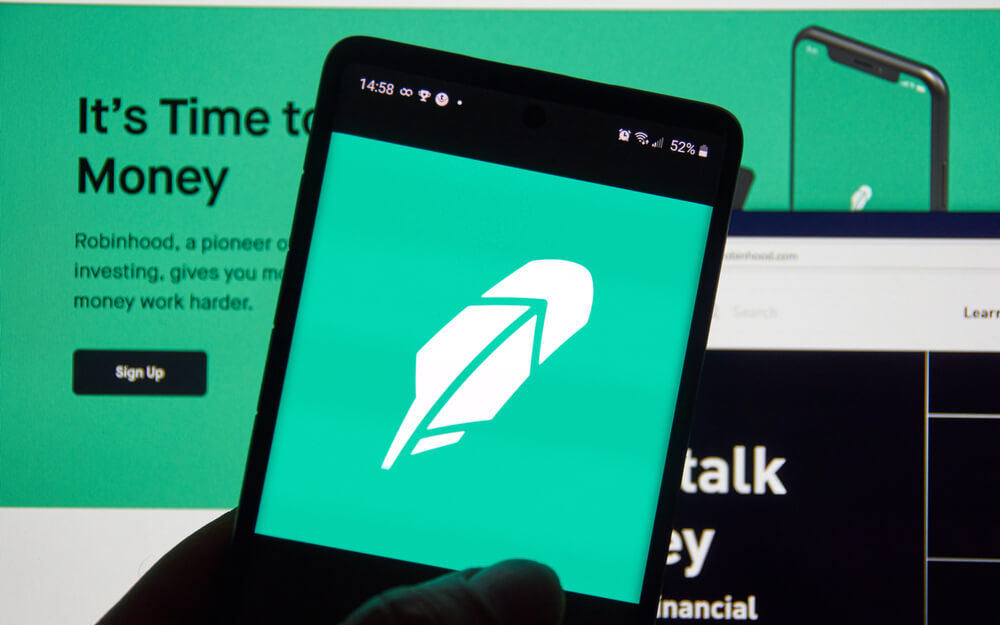It’s official.
Robinhood Markets Inc. (Nasdaq: HOOD) is a public company following its initial public offering (IPO) on Thursday.
You can now trade the broker of choice for many meme-stock traders. If you have a Robinhood account, you can do so on its platform.
But should you?
Let’s do a deeper dive on this disruptive upstart to find out.
Robinhood’s Short History
Robinhood, like its namesake folk hero, was a revolutionary. It aimed to steal from the rich and give to the poor by offering commission-free trading. (It’s still a point of controversy whether the trading is truly “free,” but I’ll get to that in a minute).
Robinhood went beyond pure cost savings. It was the first brokerage house of any size to launch in the mobile era. Rather than trying to cram normal website functionality into an iPhone app, Robinhood was designed as an app from the start. It looks and feels like a mobile video game and distinctly not like Wall Street.
It seemed to be just what a new generation of traders had been waiting for. Robinhood opened its first customer accounts in 2013, and as of the end of the first quarter of this year boasted more than 18 million accounts. That’s more than double E-Trade’s count and roughly half the number of accounts held at industry leader Fidelity. And again, that was as of the end of the first quarter. Robinhood added an estimated 4 million new accounts in the second quarter.
Source: CNBC.
The most remarkable thing is that Robinhood didn’t poach accounts from other brokerages. Most of the company’s growth has come from attracting young, first-time investors that the other brokers have ignored in the past.
Robinhood Isn’t as “Free” as You Might Think
But here’s the deal. Robinhood’s model is a lot more fragile than the bulls would like to admit. Robinhood charges nothing for stock trades. But the company still has to pay the bills. It generates the vast majority of its revenues by selling order flow.
Let me explain what that means with an analogy. Facebook doesn’t charge you for its product because you are the product. Facebook sells your information to advertisers.
Robinhood follows the same concept. The brokerage gets paid to rout customer orders through other trading firms rather than through stock exchanges. This, of course, creates the potential for front running, in that larger investors could trade in front of or against the little guys.
Robinhood argues that the executions its clients get are competitive, and that any difference is more than erased when you take into consideration the lack of commissions. So far, U.S. regulators have allowed the model to continue, but it’s worth noting that this practice is already illegal in the U.K.
Does it make sense to invest in an upstart with a controversial business model that could be wiped out with the stroke of a regulator’s pen?
At the right price, maybe. But if HOOD’s early trading is any indication, investors aren’t so sure. Shares traded down 8% on the first day of the much-anticipated Robinhood IPO.
I have a better idea…
A Better Brokerage Firm
In Green Zone Fortunes, I recently recommended the stock of a brokerage firm, one that rates a 99 out of 100 on my Green Zone Ratings growth metric, putting it among the elite of the elite.
Since 2013, the year Robinhood started operations, my recommendation has achieved annual growth rates of 25% on new accounts, 28% on the number of trades processed per day, and 32% on client equity (i.e., the amount of money clients hold at the firm).
What’s more, its customer base is far more diverse than Robinhood’s:
- 61% are classified as “individuals.”
- The remaining 39% are “institutional” investors, including financial advisers, brokers and hedge funds.
- 36% of total accounts are from the Americas.
- 38% are in Asia.
- And 26% are from Europe.
Furthermore, this brokerage firm boasts some of the fattest profit margins in the business. And its model isn’t at risk of being eliminated by changes in regulation.
So, you tell me. What makes more sense, investing in an upstart with a questionable business model … or investing in a company that has been successfully disrupting the industry for decades?
You know my answer. To find out more, click here to watch my Millionaire Market Summit now. You’ll find out how you can gain access to a special report on this “market breaker” stock today.
You see, I believe a record number of new millionaires will be minted in 2021. I’ve identified three stocks that will help make that happen. This is just one, and if you join our Green Zone Fortunes service you’ll receive special reports on all three (including my No. 1 market breaker stock sitting at the forefront of a potential $16 trillion investment opportunity).
Click here for details in my Millionaire Market Summit now.
To good profits,
Adam O’Dell
Chief investment strategist, Money & Markets
